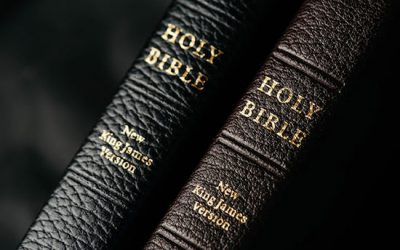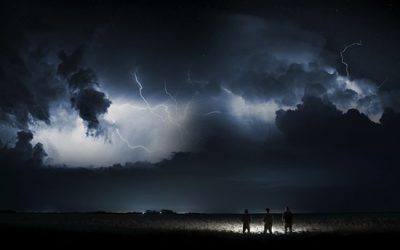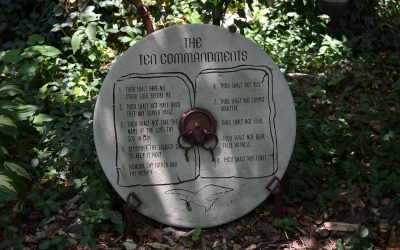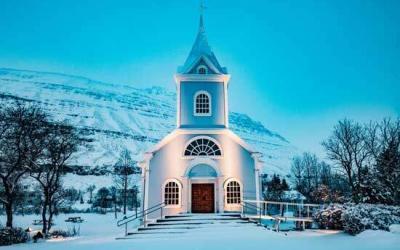The “remnant” are a group of faithful believers that have existed throughout history and proclaimed God’s truth, love, and plan to save humanity. They “remain” with God even amid persecution and also when it seems everyone else has rebelled against God or compromised their beliefs.
Seventh-day Adventists believe this group, consisting of faithful people from all churches all around the globe, will continue to hold onto God all the way to the end of this world.
Here’s what you’ll learn about the remnant in this post:
- What the Bible teaches about the remnant
- The remnant people in the last days
- Adventists and the remnant
- The message of the remnant
- Why Adventists emphasize the concept of the remnant
- What the concept of the remnant means to us today
Adventists consider this topic of the remnant and its mission as so important that they address it as one of their fundamental beliefs. It reads:
“The universal church is composed of all who truly believe in Christ, but in the last days, a time of widespread apostasy, a remnant has been called out to keep the commandments of God and the faith of Jesus.
This remnant announces the arrival of the judgment hour, proclaims salvation through Christ, and heralds the approach of His second advent.
This proclamation is symbolized by the three angels of Revelation 14; it coincides with the work of judgment in heaven and results in a work of repentance and reform on earth. Every believer is called to have a personal part in this worldwide witness.”
So let’s learn what the Bible says about this group of people.
What does the Bible teach about the remnant?
The Bible teaches that throughout sacred history, there has always been a remnant—a group of people who persevered as believers, sharing God’s Word with the nations around them. They are the remnant not because of what they do but because of the truth that God entrusted them in His Word.
Here are some Bible verses that mention the remnant.
The prophet Isaiah spoke of the people of Judah as a remnant:
“Unless the Lord of hosts had left to us a very small remnant, we would have become like Sodom, we would have been made like Gomorrah” (Isaiah 1:9, NKJV).
Both Isaiah and Jeremiah referred to the remnant many times, especially that God would bring a remnant of His people back after they had been scattered among the nations:
“In that day the Lord will extend His hand yet a second time to recover the remnant that remains of his people, from Assyria, from Egypt, from Pathros, from Cush, from Elam, from Shinar, from Hamath, and from the coastlands of the sea” (Isaiah 11:11, ESV).
These passages, though speaking of Judah in a local context, can be applied to God’s people today. Being part of the remnant doesn’t mean being Jewish or a literal descendant of Abraham (Romans 9:7–8). At the Second Coming, God will gather all His remnant from throughout the earth and from many nations (Mark 13:26–27).
But before we get ahead of ourselves, we’ll take a look at some examples of the remnant in the Old Testament.
The remnant in the Old Testament
At various times throughout the Old Testament, we find stories of people who held onto God through difficulties and shared messages of truth and warning to those around them.
Though not explicitly called “remnant” people, they fit the dictionary definition of the word remnant as “a usually small part, member, or trace remaining.”
Here are some examples:
Noah and his family
They served as the first example by following God’s instructions, building an ark, and preaching to a corrupt world about the coming flood.
After the Flood, a small group of Noah’s family remained alive, and it became their mission to spread out and proclaim God’s Word (Genesis 6).
The seven thousand believers in Elijah’s time
These were a group of people that remained faithful to God when most of the people in Israel, including its leaders, had turned to idolatry.
Elijah was at a low point, hiding out because those in power wanted him killed for defying their gods. He was discouraged, thinking he was the only follower of God left.
But God encouraged him that there were seven thousand people in Israel who had never bowed down to Baal (1 Kings 19:18).
The Israelites in Egypt
These form another powerful representation of the remnant.
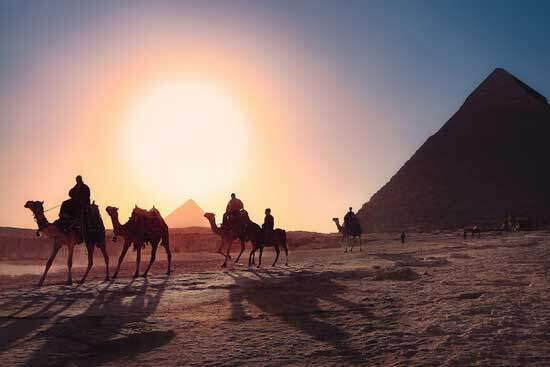
Photo by Simon Berger on Unsplash
They were a small nation of people who were to be God’s representatives. As His servants, they were also “a kingdom of priests and a holy nation” (Exodus 19:6, NKJV).
And they stood out as unique in a world filled with paganism, idolatry, child-sacrifice, and a host of other unthinkable practices and beliefs.
Israel had sacred truths that contrasted these primitive beliefs, such as:
- The Sabbath (Genesis 2: 2-3
- The law of God (Exodus 20:1-17)
- The sanctuary (Exodus 15:17)
- The plan of salvation (Isaiah 53: 1-11)
- Creation (Genesis 1-2)
These truths were all but lost to the pagan nations around them. But not because God was keeping them a secret—rather many had chosen to reject God and His truths.
So the Israelites weren’t just meant to be “special” people to waltz around as “holier than thou,” but they were to witness to the world around them of the true God. They were meant to share and grow the kingdom of God on earth.
This explains why we find texts such as these addressed to the people of Israel (and later Judah):
“Therefore be careful to observe them; for this is your wisdom and your understanding in the sight of the peoples who will hear all these statutes, and say, ‘Surely this great nation is a wise and understanding people.’ For what great nation is there that has God so near to it, as the Lord our God is to us, for whatever reason we may call upon Him?” (Deuteronomy 4:6–7, NKJV).
“Therefore you are My witnesses, says the Lord, that I am God” (Isaiah 43:12, NKJV).
But don’t we see throughout the Bible that the Israelites were often unfaithful?
Unfortunately, yes. A great deal of the Old Testament is the story of God’s people failing over and over. The sad story climaxes with their rejection of Jesus (John 19:15).
But these failures didn’t change the crucial fact that they had light and truth that others around them didn’t have. It was still their mission to share it.
In other words, the remnant isn’t defined so much by the holiness of the people but by the truths these people have been given, whether or not every single one of them are faithful to that truth 100% of the time.
For example, ancient Israel didn’t keep the seventh-day Sabbath as they should have (Exodus 16; Nehemiah 13:15–19; Jeremiah 17:27; Ezekiel 20:13). And since Sabbath-keeping was unique to them in the ancient world, this was a truth that identified them as God’s remnant.
But the fact that there were instances where they broke the Sabbath had nothing to do with the truth of that teaching in itself.
If a majority of people believed the earth were flat, that wouldn’t invalidate the truth of a round earth. Similarly, God’s principles are unchanging, and He continued to entrust them to His followers throughout history.
We’ll look at His followers in the New Testament next.
Was there a remnant in the New Testament?
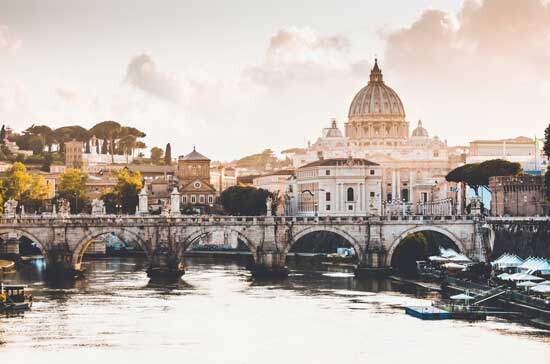
Photo by Christopher Czermak on Unsplash
Adventists believe that the early Christian church of the first centuries was the remnant in New Testament times. It was made of both Jews and Gentiles.
Seventh-day Adventist scholar Hans LaRondelle notes that the early Christian church fulfilled many of the Old Testament passages about God gathering the remnant of Israel and saving them (passages such as Isaiah 10:20–22 or Jeremiah 23:3):
“Since Pentecost, the Old Testament prophecies concerning the remnant of Israel had received their fulfillment in the formation of the apostolic church.”
But he brings out the fact that the church of the end times will experience those promises to the fullest extent:
“More than that, the faithful church of Christ down through the ages, especially in the fully restored apostolic faith in the time of the end, fulfills the remnant promises of the Old Testament.”1
Ultimately, these promises of God’s end-time remnant are something to look forward to because many of the early Christians struggled and even failed to hold onto the truth.
In the New Testament, Paul predicted that there would be a time of rebellion in the church, a falling away from the truth first delivered to the apostles:
“Let no one deceive you in any way. For that day will not come, unless the rebellion comes first, and the man of lawlessness is revealed, the son of destruction” (2 Thessalonians 2:3, ESV).
This falling away from the truth was going to take place before “that day”—the Second Coming (2 Thessalonians 2:1–2). It began during the early centuries ad and continued through the Dark Ages, when an institution, referred to here as “the man of lawlessness,” tried to take the place of God (verse 4).
The story of this rebellion and the rise of God’s final remnant is found in the book of Revelation.
Who are the remnant people in the last days?

Photo by Beau Horyza on Unsplash
Revelation 12 provides a powerful depiction of God’s remnant people at the end of time. They are a group of people who emerge after 1,260 years of persecution and remain faithful to God. This commitment makes them targets of Satan.
But we first have to understand some background.
In this chapter, God’s church is represented as a woman, which is a common symbol for the church in the Bible (Isaiah 49:15; Jeremiah 6:2; 31:22).
In Revelation 12, a woman symbolizing God’s people is about to give birth to a child.
This child is Jesus.
And then Satan, who is depicted as a dragon, seeks to destroy Him:
“The dragon stood before the woman who was ready to give birth, to devour her Child as soon as it was born” (Revelation 12:4, NKJV).
This is not just symbolic of Satan using Herod to try and kill the infant Jesus (Matthew 2:16–18). Instead, it refers to all of Satan’s attempts to destroy Jesus throughout His ministry.
But then Satan failed, and Jesus was “caught up to God and His throne” (Revelation 12:5, NKJV). And that’s where Jesus is today, ministering on our behalf in the heavenly sanctuary.
Enraged that He couldn’t stop Jesus, Satan goes after the woman who “gave birth to the male child” (Revelation 12:13, NKJV).
This woman is the faithful remnant.
In Revelation 12:6,14, we’re given a prophetic time period of 1260 days (which according to the “day for a year principle” equates to 1260 literal years).
During this time, Satan attacked the church. But despite the attacks, God preserved the church.
Adventists believe that this period was during the years of papal supremacy in the Dark Ages. A time when the Roman Church persecuted those who remained faithful to the truth.
It’s at this time that Paul’s prediction was fulfilled. The prediction of there being a great “falling away” of God’s people.
Talking about the persecution depicted in Revelation 12, Adventists teach:
“The Christian world became a battlefield. Many were imprisoned and/or executed in the name of God! During the 1260-year persecution, millions of faithful believers experienced great suffering, while many paid for their loyalty to Christ with death.”2
It’s in this context, after the specified period of persecution, that the end-time remnant church appears.
What are the characteristics of the remnant church based on Revelation 12?

Photo by Laith Abushaar on Unsplash
After depicting Satan’s attacks on the church, the Bible then talks about his continued assault on a special group of people who arise in the end—the remnant.
“And the dragon was enraged with the woman, and he went to make war with the rest of her offspring, who keep the commandments of God and have the testimony of Jesus Christ” (Revelation 12:17, NKJV).
Here, we see a direct reference to the end-time remnant (the word rest here is translated as remnant).
Who are they?
The woman is the faithful church. And her “offspring” are those later generations that came from her. They’re the faithful Christians that existed after the early days of the church.
In this case though, the verses talk about “the rest of her offspring.” That is those who remain after the long centuries of suffering and persecution.
Two distinct traits characterize this remnant.
They keep the commandments of God.
Notice, it doesn’t say they “keep most of the commandments of God.” Or that they “keep all the commandments of God but ______.” It says they keep the commandments of God, all of them (Exodus 20:1–11).
Scripture is explicit:
“For whoever shall keep the whole law, and yet stumble in one point, he is guilty of all. For He who said, ‘Do not commit adultery,’ also said, ‘Do not murder.’ Now if you do not commit adultery, but you do murder, you have become a transgressor of the law” (James 2:10–11, NKJV).
The first characteristic of this remnant is their obedience to the law of the Ten Commandments, and this includes the seventh-day Sabbath.
This doesn’t mean they’ll be saved by keeping the law. That is impossible in human strength.
Instead, they keep the law through Christ’s power. It’s an expression of their love to God for what He has done for them through the death of Jesus.
They believe it when the Bible says:
“For this is the love of God, that we keep His commandments. And His commandments are not burdensome.” (1 John 5:3, NKJV).
That is, they show their love of God by keeping His commandments—all Ten of them. It’s really that simple.
They have the testimony of Jesus Christ
What is that? Revelation 19:10 defines the testimony of Jesus for us:
“For the testimony of Jesus is the spirit of prophecy” (Revelation 19:10, NKJV).
In other words, the “testimony of Jesus” is revealed in the manifestation of the prophetic gift, something clearly taught in the New Testament.
Paul talked about the spiritual gifts given to the church, which include apostles, prophets, evangelists, pastors, and teachers (Ephesians 4:11).
The prophetic gift will be specifically seen among the end-time remnant. This gift—like all spiritual gifts the Holy Spirit gives humans—is still active among believers.
As Adventist scholar Hans LaRondelle wrote:
“Through the years Seventh-day Adventists have believed that the gift of prophecy has been manifest among them in the work of Ellen G. White.”3
Her ministry aligns with this characteristic of the remnant.
So does this mean that only a certain denomination can belong to the remnant? We’ll explore that next.
Do Adventists believe they alone are the remnant for the last days?
Absolutely not. Seventh-day Adventists have never taught that a person has to be an Adventist to be saved.
And as we have seen with ancient Israel, just being part of the remnant doesn’t guarantee salvation.
Historically, the remnant has been defined by the distinct truths it had. Distinct truths that it needed to spread to others.
It was not defined by the holiness of its people because unfortunately, many of its people weren’t always all that holy!
And the same goes for the Seventh-day Adventist Church.
Just like any church group that has ever existed on earth, it is filled with flawed people. But it also has a distinct message of truth and hope to proclaim to the world.

Photo by Sincerely Media on Unsplash
And this is found in the three angels’ messages in Revelation.
What is the message of the remnant people in the last days?
Seventh-day Adventists believe that God has a “present truth” message in every age (2 Peter 1:12). And for these last days, the three angels’ messages of Revelation 14:1–12 constitute the distinct message for this specific time, just before the return of Jesus.
The Church also believes that it has been called by God to proclaim these truths to the world.
That means spreading the three angels’ messages is its mission.
What are these messages?
The first angel’s message

Photo by Sora Shimazaki
“Then I saw another angel flying in the midst of heaven, having the everlasting gospel to preach to those who dwell on the earth—to every nation, tribe, tongue, and people—saying with a loud voice, ‘Fear God and give glory to Him, for the hour of His judgment has come; and worship Him who made heaven and earth, the sea and springs of water’” (Revelation 14:6–7, NKJV).
There’s so much in here.
But the essence of the message is that the time of judgment has come. And this is in the context of the “everlasting gospel.”
And because judgment time is here, the whole world is called to worship their Creator, the one who made and sustains them.
In many ways, this “present truth” message is just a restating of basic biblical truths that go back to the Garden of Eden after the Fall.
But this time, these biblical truths are in the context of the last days of earth’s history, before the second coming of Christ.
The second angel’s message
“And another angel followed, saying, ‘Babylon is fallen, is fallen, that great city, because she has made all nations drink of the wine of the wrath of her fornication’” (Revelation 14:8, NKJV).
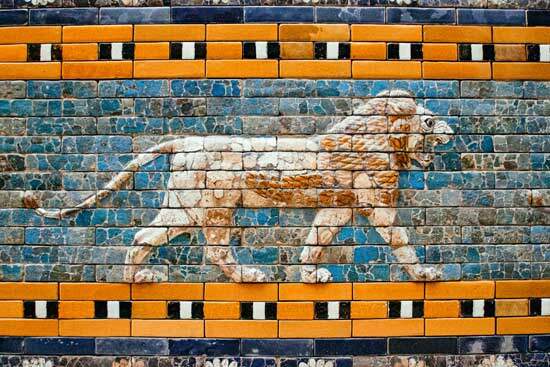
Photo by Girl with red hat on Unsplash
In the Old Testament, the ancient city of Babylon has always been depicted as the enemy of God and His people (2 Kings 25:6; Daniel 1:1).
And now, that imagery is used to depict those who are against God and His people in the last days.
Fornication is a biblical symbol of false teachings and false doctrines, which are unfaithfulness to God (Ezekiel 16:15; Hosea 2:5).
“Babylon” represents the collective false religion/doctrines.
Therefore, this message is to let the world know just how widespread and serious the misleading doctrines and practices of Babylon’s false religion really are.
In fact, God’s people are later called to “come out of her [Babylon]” (Revelation 18:4, NKJV).
The third angel’s message
“Then a third angel followed them, saying with a loud voice, ‘If anyone worships the beast and his image, and receives his mark on his forehead or on his hand, he himself shall also drink of the wine of the wrath of God, which is poured out full strength into the cup of His indignation’” (Revelation 14:9, 10, NKJV).

Photo by Pedro Lima on Unsplash
This warning depicts a time of worldwide persecution, just before Christ returns (Revelation 13:1–17).
Notice how central worship is here.
In the first angel’s message, people are called to worship God with an emphasis on Him as creator (Revelation 14:6–7).
But in the third angel’s message, people are warned about worshiping the “beast and his image,” an end-time expression of the false religions of Babylon that was depicted in the second angel’s message.
Finally, Revelation 14:12 gives us another description of God’s end-time people, His remnant:
“Here is the patience of the saints; here are those who keep the commandments of God and the faith of Jesus” (Revelation 14:12, NKJV).
Again, as in the earlier mention of the remnant in Revelation 12, “the commandments of God” are one of the two main characteristics that identify it.
This second characteristic mentions “the faith of Jesus”—an expression that reveals their faith in God and their trust in Christ’s sacrificial death, which alone makes it possible for us to experience salvation and redemption.
We could say that these people truly believe in the gospel and its power to transform their lives and empower them to be faithful—no matter what.
Why do Adventists emphasize the concept of the remnant?
Adventists believe that the remnant is an important concept that the Bible itself emphasizes. God doesn’t want the remnant to be an exclusive group; He wants as many as possible to join it and be prepared for Jesus’ second coming.
This group will have the following identifying marks:
- A proclamation of the gospel—salvation by faith in Jesus Christ
- Faithfulness to the commandments of God, including the seventh-day Sabbath
- The manifestation of “the spirit of prophecy”
- Preparation for Jesus’ second coming
We see these characteristics in the Adventist Church, and we have the privilege of sharing the truth for the present time so that others can be part of that group too.
What does the concept of the remnant mean for us today?
The whole idea of a remnant group of people is that God is our refuge and strength (Psalm 46:1), and that He will always make sure His message and His people persevere, even when things seem impossible. He will never leave us or forsake us (Deuteronomy 31:6).
There is no special favor or reward for any of God’s remnant groups throughout history. Rather, the end-time remnant is a group of people that makes use of the spiritual gift of prophecy and proclaims the three angels’ messages, just as the Holy Spirit has empowered individuals with other spiritual gifts in times past.
The real takeaway here is that our mighty God is the victor, and He loves humanity enough to do whatever it takes to save us (John 3:16, 17).
He will even bestow upon humans remarkable spiritual gifts to make sure His Word is shared with those who want to hear it (1 Corinthians 12:4–11).
And everyone who claims Jesus as their savior, recognizing His sacrifice to free us from the influence of “Babylon,” will be called to meet Jesus in the air when He returns for us (Joel 2:32; 1 Thessalonians 4:17).
Choose an Online Bible Study
Want to keep learning? Find out more about Jesus, humanity, the plan of salvation, and how God loves you enough to sacrifice everything, just to give you a chance to choose Him.
Sometimes it can be hard to know where to start, that’s why we offer free, user-friendly, online Bible study options you can do anytime, anywhere, and at your own pace.
This online Bible school will take you through the major themes of Scripture, breaking down the Bible’s complex concepts into bite-sized pieces, which can lead you toward the answers of life’s more challenging questions.
Bible Verses About the Remnant
2 Kings 19:30–31
Ezra 9:8
Isaiah 10:20–22
Isaiah 37:31–32
Jeremiah 23:3
Jeremiah 31:7
Jeremiah 42:2–12
Joel 2:32
Micah 5:2–3
Micah 7:18
Zephaniah 3:13
Haggai 1:12–14
Zechariah 8:12
Romans 9:27
Romans 11:5
Related Articles
More Answers
Adventist Beliefs
Learn how the 28 Fundamental Beliefs summarize and describe Seventh-day Adventism. They are not a checklist of requirements; instead they show how Adventists interpret and apply Scripture.
What Do Adventists Believe About the Authority of the Bible?
Learn how one really old book (the Bible) is the sole foundation for all Seventh-day Adventist beliefs.
Is the Soul Immortal? Exploring What Adventists Believe
Based on the way the Bible describes humanity in comparison to God and angels, Seventh-day Adventists believe souls are not something you have, but something you are.
What Do Adventists Believe About the Mark of the Beast and 666?
It’s a popular topic, especially during tumultuous times. When everything around you feels chaotic, it’s easy to wonder about the end of the world, and topics like the mark of the beast, as mentioned in Revelation 13, can stir up uneasiness.
What Do Adventists Believe About the Atonement?
If you’ve spent much time in the Bible books of Leviticus or Numbers, you might’ve noticed the word atonement.
Do Seventh-day Adventists Believe Only They Will Go to Heaven?
No, Adventists definitely don’t believe they’re the only ones that will go to heaven. As a matter of fact, we don’t believe admittance into heaven is ever based on which church or denomination we belong to. People all over the world from different Christian denominations, religions, and walks of life will be welcomed by Jesus.
How Adventists Developed the Sanctuary Doctrine and What It Means
The sanctuary was a building at the center of ancient Israelite society that gives us a small picture of the original sanctuary, God’s throne room in heaven (Hebrews 8:1-2).
What Do Adventists Believe About Faith and Works?
Adventists believe we are saved by faith, which is the belief and trust we have in Jesus to save us from our sins. Jesus, then, enables us to live in harmony with God’s commandments and serve others with love—sometimes referred to as “works.”
Do Seventh-day Adventists Believe in Hell?
Seventh-day Adventists believe that any human being who accepts God’s free gift of salvation through Jesus will be given eternal life. But what about the eternal fate of those who choose not to accept Jesus?
Sola Scriptura—What It Means and Why It Matters
Sola scriptura is a term that originated during the Protestant Reformation. It represents the way many Christians view the Bible and its authority. While the idea is simple enough, there is so much more to sola scriptura than its basic definition.
Do Seventh-day Adventists Believe in the Secret Rapture
The secret rapture belief asserts that the followers of Jesus will be suddenly and stealthily “raptured” from earth and taken to heaven. Then, any people left on earth will face a period of great difficulty—before Christ’s second coming actually happens.
Why do Adventists Emphasize Religious Liberty?
Adventists see religious liberty as an essential human right. After all, God endowed humanity with freedom of choice from the very beginning. So we believe it’s best for governments to also support their citizens’ rights to worship based on their convictions.
What Seventh-day Adventists Believe About Growing in Christ
Christian growth is the experience of allowing Jesus Christ to work in our lives through the Holy Spirit and restore in us the image we were designed for—God’s image of selfless, other-centered love.
What Do Seventh-day Adventists Believe about the New Earth?
Seventh-day Adventist, like other Christians, believe that after the second coming of Christ, God will cleanse our earth by fire and then restore it back to Eden-like perfection.
What Adventists Believe About the Millennium and the End of Sin
As most Christians, Seventh-day Adventists hope for the time when sin and evil will no longer exist. The Bible teaches that God will bring an end to sin after a thousand-year period of time called the millennium.
What Are Seventh-day Adventists Beliefs on Death and the Resurrection?
The thought of dying can seem scary. And the idea of being resurrected—or coming back to life—can seem a little uncomfortable.
What Do Seventh-day Adventists Believe about The Second Coming of Christ?
The second coming of Jesus Christ is an event the Bible prophesies will occur at the end of this world’s history. It’s called His second coming to distinguish it from His first, when Jesus was born to Mary and lived as a human before dying on the Cross.
What Adventists Believe About Jesus’ Ministry in the Heavenly Sanctuary
The ancient Israelite sanctuary had a daily service and a yearly service. Jesus’ death on the Cross and His ministry in the heavenly sanctuary reflect these services.
What do Seventh-day Adventists Believe about Marriage and Family?
The Seventh-day Adventist Church believes God established marriage and the family unit to be blessings to humanity. They make up a relational structure that can reflect the multifaceted nature of God’s love.
What Seventh-day Adventists Believe about Christian Behavior
The patterns of actions and words that make up behavior are central to any type of belief system because they flow from those beliefs. Seventh-day Adventists look to the Bible, with Jesus as the perfect example, for guidance on shaping our daily behavior.
What do Seventh-day Adventists Believe about the Sabbath?
Seventh-day Adventists believe that the biblical Sabbath is a beautiful gift of rest that God gave to us at Creation and that remains valid to this day. Falling on the seventh day of the week—Saturday—it connects us to God in a special way and offers us a weekly opportunity to be physically, mentally, and spiritually refreshed.
What Seventh-day Adventists Believe about Stewardship (and What Does It Mean?)
Love for God and our fellow humans is the overriding principle of the Seventh-day Adventist faith. And we express that love in an overarching way through how we manage the things—material and immaterial—that God has entrusted to us.
What Do Adventists Believe About the Law of God?
Seventh-day Adventists believe that God’s law reflects His character of love (1 John 4:8; Romans 13:10). It is perfectly summarized in the Ten Commandments given to Moses on Mount Sinai, showing us the practical application of loving God and loving other people.
What Do Seventh-day Adventists Believe About the Gift of Prophecy?
Adventists believe the gift of prophecy is a spiritual gift that the Holy Spirit gives to specific individuals to help the church carry out Jesus’ Great Commission (Matthew 28:16–20). Prophecy helps strengthen, encourage, and comfort His people (1 Corinthians 14:3).
What Seventh-day Adventists Believe About Spiritual Gifts in the Bible
Seventh-day Adventists believe that spiritual gifts are talents that the Holy Spirit gives to believers and followers of Jesus Christ. These gifts are different but complementary, and they often equip followers of Christ with the ability to spread the good news about Jesus and encourage its members.
What do Seventh-day Adventists Believe about the Lord’s Supper (Communion)?
Like many Protestant Christians, Seventh-day Adventists believe in the practice commonly called the Lord’s Supper or Holy Communion. They drink grape juice and eat unleavened bread in obedience to Jesus’ direct instructions to do it in remembrance of Him (1 Corinthians 11:24–25).
What do Seventh-day Adventists Believe about Baptism?
Like many Protestant Christians worldwide and throughout history, the Seventh-day Adventist Church believes in baptism, a ceremony in which individuals go under water to publicly demonstrate dying to an old life and beginning a new life in Christ. We baptize people by immersion, as taught and exemplified in the Bible.
What Do Seventh-day Adventists Believe about Unity in Christ?
Seventh-day Adventists believe in biblical unity—the idea of believers in Jesus being united by the truth of the Bible and the common goal of representing God and His love to the world.
What do Seventh-day Adventists Believe about the Church?
Seventh-day Adventists believe that the idea of the church is an important biblical concept.
Didn’t find your answer? Ask us!
We understand your concern of having questions but not knowing who to ask—we’ve felt it ourselves. When you’re ready to learn more about Adventists, send us a question! We know a thing or two about Adventists.














